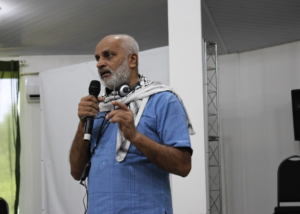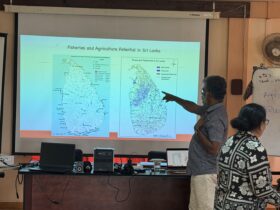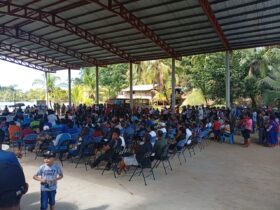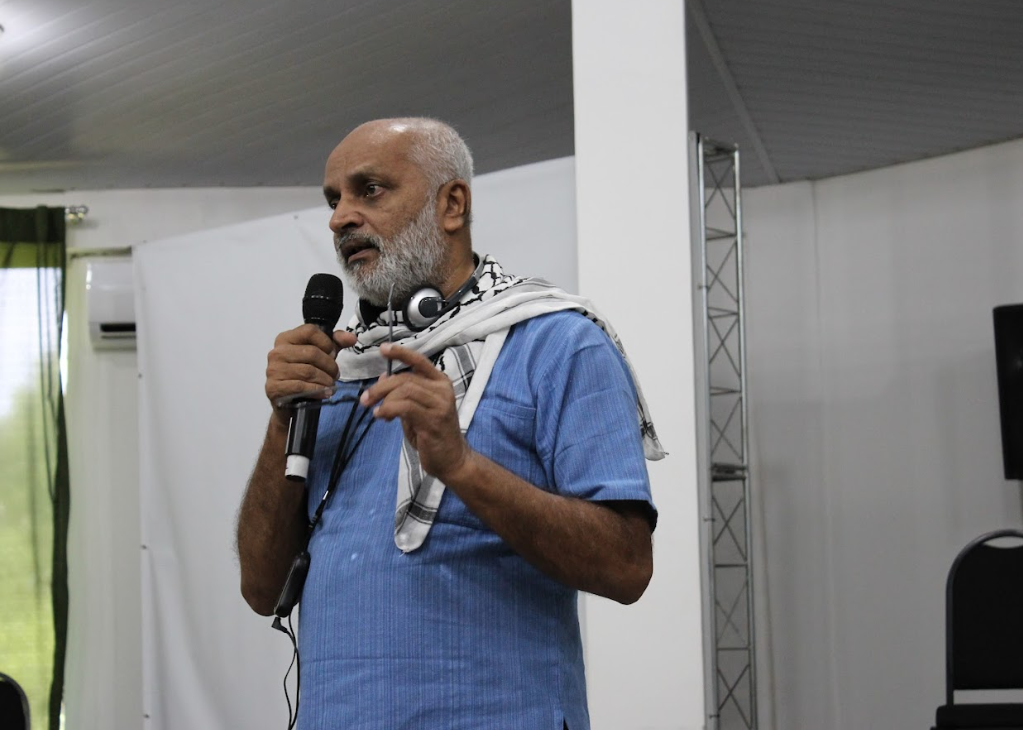The 8th General Assembly of the World Forum of Fisher Peoples (WFFP) featured a powerful session on Food Sovereignty, with a focus on its challenges and its deep connection to identity. This important gathering brought together facilitators and participants from various regions, each sharing their insights on how food sovereignty can strengthen communities and protect the rights of people around the globe.
 Facilitated by Lider Gongora from Ecuador, this segment focused on the pressing challenges faced by communities striving to secure food sovereignty. As many nations struggle with corporate-driven agricultural systems, the session explored the complexities of resisting industrial agriculture, protecting local food systems, and ensuring that food remains accessible, culturally appropriate, and sustainably produced. Leaders from affected regions discussed the impacts of land grabbing, climate change, and the commodification of food, all of which threaten local food production systems and the livelihoods of small-scale farmers and fishers.
Facilitated by Lider Gongora from Ecuador, this segment focused on the pressing challenges faced by communities striving to secure food sovereignty. As many nations struggle with corporate-driven agricultural systems, the session explored the complexities of resisting industrial agriculture, protecting local food systems, and ensuring that food remains accessible, culturally appropriate, and sustainably produced. Leaders from affected regions discussed the impacts of land grabbing, climate change, and the commodification of food, all of which threaten local food production systems and the livelihoods of small-scale farmers and fishers.
The session, facilitated by Annelien Groten from UAWC (Union of Agricultural Work Committees), underscored the idea that food sovereignty is not just about access to food, but also about preserving cultural identities. The act of cultivating and consuming food is deeply intertwined with social traditions, cultural practices, and community identity. Across the globe, food sovereignty movements are not just advocating for better food systems but are also asserting the right to protect and revitalize local cultures, languages, and histories.
 Facilitated by Jordan Volmink from South Africa, this session highlighted the need for collective action and global solidarity in mobilizing for food sovereignty. From grassroots organizations to international alliances, the discussion focused on how communities worldwide are uniting to demand policy changes that support food sovereignty. Participants shared their strategies for building political and social movements that challenge corporate control over agriculture and promote food systems that prioritize people and the planet over profits.
Facilitated by Jordan Volmink from South Africa, this session highlighted the need for collective action and global solidarity in mobilizing for food sovereignty. From grassroots organizations to international alliances, the discussion focused on how communities worldwide are uniting to demand policy changes that support food sovereignty. Participants shared their strategies for building political and social movements that challenge corporate control over agriculture and promote food systems that prioritize people and the planet over profits.





